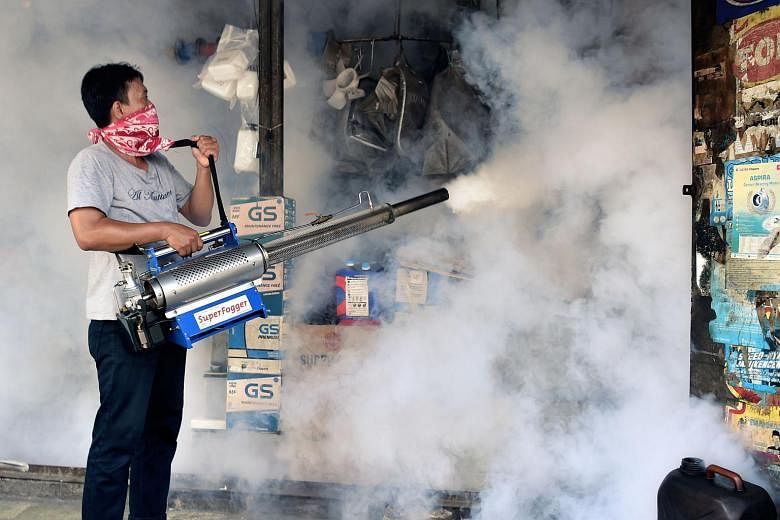BOGOTA • The mosquito-borne Zika virus sweeping through Latin America has claimed three lives in Colombia, as the United Nations urged increased access to abortion because of fears of severe birth defects.
In the first direct statements from government health officials blaming Zika for causing deaths, Colombia's National Health Institute (INS) said on Friday that the patients died after contracting the virus and developing a rare neurological disorder called Guillain-Barre syndrome.
Cases of the syndrome - in which the immune system attacks the nervous system, causing weakness and sometimes paralysis - have increased in tandem with the Zika outbreak, fuelling suspicions that it is a complication of the otherwise mild tropical fever.
"Other cases (of deaths linked to Zika) are going to emerge," said epidemiologist Martha Lucia Ospina, director of the INS. "The world is realising that Zika can be deadly. The mortality rate is not very high, but it can be deadly."
Citing the rise in babies born with microcephaly, or abnormally small heads and brains, which has also been linked to Zika, the UN's human rights office has urged countries hit by the virus to give women access to contraception and abortion.
Women's reproductive rights are a touchy subject in largely Catholic Latin America. But the UN office said countries urging women to avoid pregnancy, such as Colombia, Ecuador, El Salvador, Jamaica and Panama, had to give them ways to control their fertility.
Brazil's top research centre, the Fiocruz Institute in Rio de Janeiro, has warned that even kissing could potentially spread Zika - which has been detected in urine and saliva - while the US Centres for Disease Control (CDC) has urged people to use condoms or abstain from having sex if they live in or have travelled to Zika-infected areas.
Adding to fears, the World Health Organisation has advised countries against accepting blood donations from people who have travelled to affected regions. But both the CDC and Fiocruz said more research was needed on person-to-person transmission.
Australian authorities said yesterday that they will intensify testing for the Zika virus in Queensland state, where Aedes mosquitoes are found, adding that two new cases among local residents were the result of travel to affected countries.
Queensland's government has earmarked A$400,000 (S$398,000) to boost laboratory capacity, particularly in the north-eastern city of Townsville, where testing will begin next month. An A$1 million public education campaign will also be rolled out in the state, which is on high alert for any entry of the disease from Australia's neighbours.
Queensland Health Minister Cameron Dick said the state had to be prepared for more cases of Zika. Ten cases of the virus have been reported in the state in the past two years.
AGENCE FRANCE-PRESSE, REUTERS

